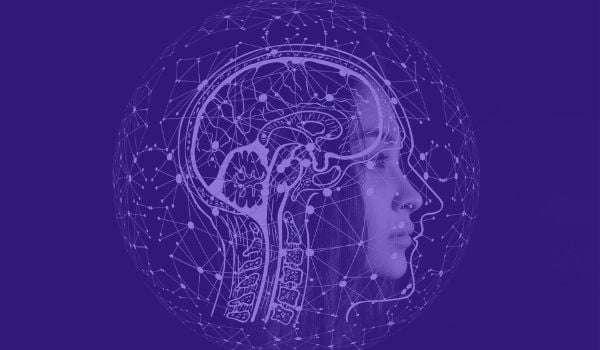Contents
Originally published in a Forbes Technology . In this article Marc Vontobel, Starmind Founder & CTO, discusses the impact of the crisis in 2020 on businesses’ digital strategy, and how it is an opportunity to embrace technology that can create clear insights on where intelligence, expertise and skills lie in the business to aid in augmenting human intelligence.
We're in the midst of a workplace technology revolution.
With up to a third of the world's population having been under lockdown about a month ago, millions of organizations across the globe have shifted to a digital-first strategy.
The impact of COVID-19 on how we work was sudden. But in terms of the impact on a move to remote working, it was as much a catalyst as a cause. Remote work in the U.S. has seen a major upward trend. In fact, according to a FlexJobs report, between 2005 and 2017, the number of people working remotely in the U.S. grew 159%, and today that number equals 3.4% of the population. Eighty percent of workers even say they won't take a job unless there's an option to work remotely.
And for good reason. Working from home is shown to boost workplace satisfaction and productivity. The new reality is that remote working will be here to stay.
Businesses now face the question of what comes next. Governments across the world are tentatively considering how to ease lockdowns and kick-start economies. While safety remains paramount, businesses, too, will be considering post-coronavirus strategies.
Future steps must be carefully considered — not only for the sake of workers who have discovered the benefits of remote working but for business productivity in the face of a challenging economy. Now is a chance to take on both old and new lessons about how we work.
What's clear is that workplace technology choices are more critical than ever. Organizations relied on tools such as videoconferencing apps and collaboration hubs to manage the transition to a remote workspace. But which technologies can offer solutions that retain the benefits of the global foray into remote work and take forward workplaces that are more productive, connected and effective than ever before?
Locating Organizational Expertise
Workers have access to more information today than ever before. Emails, Slack messages, G Drives filled with data — all of these have only grown as greater numbers of workers have shifted conversations from the boardroom or the watercooler to a Google Hangout or Asana task over the past few weeks.
But while recognizing the vast improvements in productivity these technologies can offer, something is still missing. According to our company's recent report, 75% of workers state that their organization would benefit from accessing more of their expertise, and on average, businesses lose an entire month of productivity every year by not utilizing their experts effectively. Despite all the data we are sending and receiving (incredibly, nearly 300 billion emails were sent per day in 2019), businesses are failing to identify where expertise resides in their organizations.
As companies look beyond the immediate impact of the pandemic and think about long-term strategies and economic recovery, this represents a huge untapped source of potential productivity they can no longer afford to ignore.
What is clear by now is that after an initial rush to mass remote working, many businesses have now adapted with relative ease. This means that the next challenge is not simply to replicate the status quo but to level up.
AI As The Foundation For Future Tech Stacks
Employees split their time over many tools, depending on their role and the task at hand. From Slack and Google Calendar to PowerPoint, Dropbox and Jive, workers can use dozens of apps each day — and as growth figures from the likes of Zoom have shown, the frequency at which they are being used is skyrocketing with so many people working from home.
Each of these tools is useful on its own, but their value grows exponentially when a business is able to extract insights on skills and expertise through its use in conjunction with others.
As organizations and employees embrace the power of technology in greater numbers than ever, the next evolution of the business tech stack will be found in tools that can analyze the snippets of information on skills and expertise shared across these different platforms. This intel can then be used to create clear insights on where intelligence, expertise and skills lie in the business to aid in augmenting human intelligence.
Due to the scale, complexity and disparity between different sources of the data being analyzed, artificial intelligence is essential to doing this effectively. AI can continually adjust, learn — and even forget — as it pulls insights from the existing tech infrastructure and teams go about their daily work.
Helping identify skills and enhance intel across an organization is just one use case for AI, however. With more people working from home, it follows that there will be more hacks by fraudsters. Moving forward, AI will play a critical role in adapting to an organization's cybersecurity needs.
AI will also help in improving customer experiences. The surge in online shopping means businesses need to set up additional support for their staff to cater to all orders. Virtual assistants, for example, may help reduce the time workers spend in responding to simple questions.
Implementing AI to support different aspects of business — whether cybersecurity, customer experience or knowledge management — can ultimately help workers get time back to focus on the tasks that matter most.
Businesses are rightly paying closer attention than ever before to the technology they are using to empower employees. Future workers will expect evidence of how an organization has adapted and learned from recent events to create a coherent digital-first strategy. However, it would be a mistake to think that merely recreating the physical office is the only goal for productive digital workspaces and operations.
The potential of the technology available and the human-powered expertise that resides in each business is much greater than that. It's now time to embrace AI's ability to unlock it.
Read the original article here: https://www.forbes.com/sites/forbestechcouncil/2020/06/09/digital-first-work-is-here-to-stay-but-ai-can-do-much-more-than-replicate-the-old-office/#5a8efa477dbb



